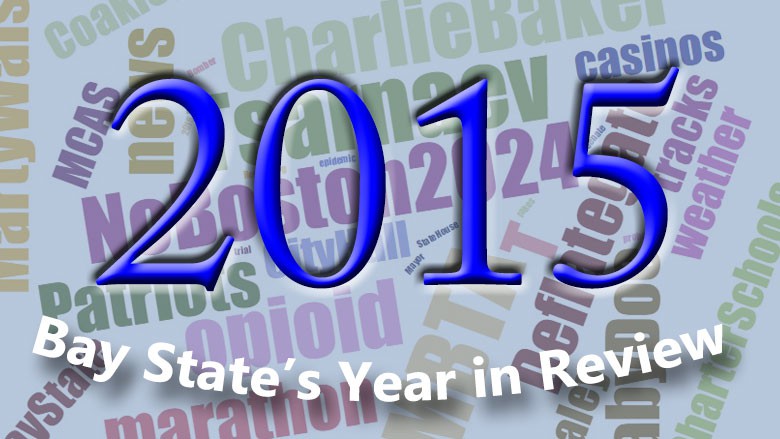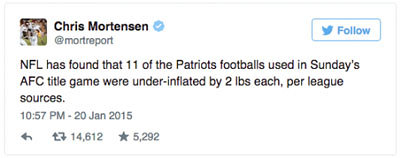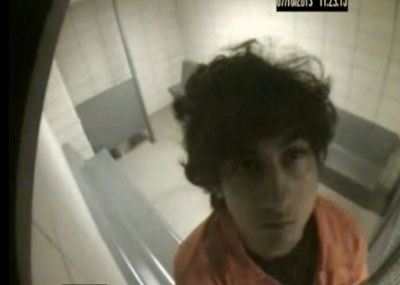As 2015 fades out, here are the Bay State’s most memorable moments
By Evan Lips | December 30, 2015, 15:01 EST
 Graphic by the NewBostonPost
Graphic by the NewBostonPost BOSTON – Plenty of Massachusetts news was fit to print in 2015. Here’s our take on the 10 biggest Bay State stories of the year, in chronological order:
Charlie Baker takes the reigns
Derailed in 2010 by a third-party nuisance from Quincy named Tim Cahill, Republican Charlie Baker, a former Harvard Pilgrim Health Care chief executive and state administration and finance secretary, managed to land the state’s top job by defeating former Attorney General Martha Coakley, a Democrat, in November 2014. The following January, he took the reins as the Bay State’s 72nd governor.
But there was no honeymoon in store for Baker. He immediately confronted crises spurred by Mother Nature with record snow and a derailed Boston transit system, an ongoing drug epidemic, a dysfunctional transportation system bleeding cash and a beleaguered social services agency.
As a Republican governor presiding over a State House packed with Democrats, Baker showed a willingness to reach across the aisle to get things done. In the face of these challenges, Baker managed to rank first out of 50 governors in terms of overall approval ratings among their states’ voters. He continues to enjoy a 70 percent approval rating among Massachusetts voters.
Not bad for Year One.
Snowmageddon
For Bostonians and Hub commuters, the weeks spanning late January and February were like the Bill Murray comedy “Groundhog Day,” in which the main character is forced to relive the the same day over and over again. Over about 45 days last winter, Boston weather functioned with the same clockwork precision, as relentless storms blanketed the city with a record 108.6 inches of snow and causing repeated school cancellations, unmitigated commuter woe, parking spot confrontations and snow mountains that didn’t melt away until mid-summer.
What made it particularly memorable (and enraging) was the unrelenting stretch of subfreezing temperatures that accompanied the storms, preventing old snow from melting before nature threw another fresh blanket on the city.
The MBTA
The Kingston Trio once sang about a man named Charlie, who was “doomed to ride beneath the streets of Boston” because he couldn’t pay his fare. He was relegated to a form of transit-prison, unable to get out of the T. Ever.
A 2015 version might focus on a man named Harry, who can’t get on a T train to save his life, never mind his job.
In 2015, weary commuters braved the elements only to wait for trains that didn’t arrive, a transit chief who blamed the woeful service on a “lack of magic sauce” and trains that “aren’t exactly spring chickens,” transit workers who didn’t show up 57 days a year, on average, and pay policies that resulted in more than 1,500 MBTA workers – almost a quarter of the entire T staff – hauling in more than $100,000 in wages this year amid an operating deficit closing in on $200 million and fare hikes in the wind.
The Kingston Trio’s 1959 hit was actually written in the 1940s at the height of a mayoral campaign and was intended to rally voters against fare increases. More than 70 years later, there’s plenty of fodder for another tune, though it would likely be a blues number this time around.
Deflategate
Ever since the Watergate affair that brought down a president, a perceived scandal doesn’t take on national trappings until it gets “-gate” attached to it, and that includes imbroglios involving footballs.
Thus we have “Deflategate,” an episodic spectacle seemingly launched by an odd tweet from an Indianapolis sports columnist published hours after the New England Patriots and superstar quarterback Tom Brady dismantled the Indianapolis Colts in the Jan. 18 American Football Conference championship game to earn a berth in the 2015 Super Bowl.
Just two days later, reporter Chris Mortensen posted an allegation on Twitter saying that the league found 11 of 12 footballs Brady used in the Colts game were underinflated by 2 pounds-per-square-inch, citing “league sources.” By holding less air than league rules require, the balls would be easier to grip. From that point forward, it was off to the races. After the Patriots won the Super Bowl, the spotlight only intensified and often became the top story on national news broadcasts stretching late into the summer.
According to a Marist Poll released in December by Marist College in Poughkeepsie, New York, Deflategate ranked as the sports world’s biggest story in 2015.
An league investigation later determined that only one of the 12 footballs tested was underinflated by 2 pounds. More than six months later, Mortensen finally deleted his tweet, but by then the damage was done.
“Mortensen’s report took what had previously been smoke and created a firestorm out of it,” opined a Comcast SportsNet New England report. Fresh episodes, featuring a back-and-forth between lawyers, judges and others, have continued to play out, and a whole new chapter may begin next year.
Malcolm, GO!
While Deflategate rumbles on, another memorable Patriots story marked the end of last season. If you didn’t know who Malcolm Butler was before Feb. 1, you knew the rookie’s name the following morning. It was Butler, after all, who clinched a come-from-behind win in Super Bowl XLIX for New England’s team with a gritty last-minute goal line interception against the Seattle Seahawks.
In an instant, the defensive back from Vicksburg, Mississippi, became the toast of Boston. The Patriots, in the franchise’s quest for a fourth Super Bowl ring, had seconds earlier experienced arguably the most stunningly unbelievable catch made against them since the New York Giants’ David Tyree helped end their dreams of a perfect 2007 season.
Ricardo Lockette’s final-minute catch’s resemblance to Tyree’s play was ground in by a montage of highlight videos that aired immediately afterwards. Enter Butler, who will never pay for dinner in the Hub for as long as he lives, and got himself a new ride after Tom Brady, awarded a new pickup by being named the game’s most valuable player, handed the rookie the keys.
Imagine how much worse February would have been had the Pats lost.
The Marathon Bomber trial
A federal jury on April 8 convicted Dzhokhar Tsarnaev on all 30 counts against him. It took a jury a scant 26 minutes to return its verdict. The younger of the two Cambridge brothers who plotted and carried out the 2013 Boston Marathon bombings now faces the death penalty. The ethnic Chechens, whose parents have since returned to Dagestan, Russia, were radicalized Muslims.
Tsarnaev’s June 25 sentencing spurred an ongoing debate over capital punishment. His elder brother, Tamerlan, died in a confrontation with police in Watertown days after the bombings, which left three people dead and hundreds more injured.
Baby Doe

The search to identify Baby Doe came to a tragic conclusion in September. (National Center for Missing and Exploited Children)
Gov. Charlie Baker’s first term provided the Republican with plenty of challenges, but none were as personal or heart-wrenching as the disfunction surrounding the state Department of Children and Families, or DCF. Tasked with protecting at-risk children, the agency mortally failed a 2-year-old named Bella Bond.
Authorities struggled to identify the toddler when a beachcomber discovered her body June 25 stuffed inside a plastic bag on Boston Harbor’s Deer Island. For the rest of the summer, she was known only as “Baby Doe.” On Sept. 18, authorities finally identified her.
The big break in the case came when a neighbor of Bella’s mother, Rachelle Bond, confronted the woman to ask why the child had been absent from their Dorchester neighborhood for so long. Bond reportedly told the neighbor that Bella had been “taken away” by DCF.
Bond’s boyfriend Michael McCarthy faces a murder charge in the toddler’s death while Bond has been charged as an accomplice. Officials say the tragedy could have been avoided had DCF workers directed more attention to several previous negligence complaints.
Baby Bella’s death was the most high-profile DCF case in 2015. The beleaguered agency was also faulted in the death of an Auburn toddler and the near-death of a 7-year-old Hardwick boy allegedly abused by his father. Baker has since committed a significant amount of attention to an overhaul of the department.
#NoBoston2024
Bostonians are known for their passion when it comes to their local sports teams, but in 2015 there was one proposed sporting event that an overwhelming number of Hub residents elected to root against: a bid to host the 2024 Summer Olympics.
Things got real on Jan. 8 when the U.S. Olympic Committee tapped Boston to be their choice should the International Olympic Committee pick America as the host country for the world’s biggest athletic event.
Another victory for Hub sports fanatics? Think again. The issue helped forge a rare alliance between liberals and conservatives, who joined in opposing the potential for massive spending of public funds to host the games, not to mention the months of traffic disruptions from the events and preparations leading up to them.
Organizers promised a privately-financed spectacle in public statements and airbrushed reports, but Bostonians demanded to see the fine print.
On July 20, Boston City Councillor Tito Jackson demanded that officials fork over a complete version of the organizers’ bid package, which many speculated would feature provisions allowing for the use of tax money. The negative publicity surrounding the issue prompted the Olympic committee to yank Boston’s bid, even though Mayor Marty Walsh declared that the only opposition came from “10 people on Twitter.”
Mayor takes on casinos
Boston Mayor Marty Walsh devoted a significant chunk of 2015 to slinging legal grenades across the Mystic River at a well-heeled Las Vegas casino magnate looking to create a slice of Sin City in blue-collar Everett. The saga has yet to reach its conclusion but has already received more than its fair share of ink and cyberspace. Everybody loves a great drama, and thus far, Walsh v. Steve Wynn has not failed to entertain.
Wynn in September 2014 won a state casino license for the Boston metro area over a group in neighboring Revere, and began planning his Wynn Everett gaming palace. With the promise of more than 3,000 jobs and salaries averaging $56,000, there was a lot to like about Wynn’s plans. Walsh, however, is not a fan.
But he does seem to be a gambler, using more than $1 million in city funds to pursue legal challenges to either win concessions or force Wynn to get out of town.
At the root of the mayor’s ire appears to be something all Bostonians can relate to: traffic. Walsh claims Wynn’s casino would jam up critical thoroughfares connecting the Charlestown neighborhood to the rest of the city. In December, a federal judge tossed out Walsh’s complaint but the mayor said he’ll keep battling and told reporters he’s “fighting on behalf of the city of Boston.”
At last report, Walsh and Wynn were trying to settle their differences – at a conference table rather than a card table.
The opioid epidemic
With Monday’s television broadcast of a documentary portraying the scourge of heroin addiction on Cape Cod, Massachusetts’ growing opioid epidemic reached the national stage.
Abuse of heroin and synthetic opiates used as painkillers has been on the rise in the Bay State since 2001, with a quadrupling in fatal opioid overdoses. More than 1,200 deaths in Massachusetts were attributed to the addictive drugs in 2014 alone. The epidemic prompted Baker to draft a bill to address the problem, including limiting first-time prescriptions of opioid painkillers to a three-day supply and giving doctors the ability to hold patients against their will for up to three days to protect them from themselves.
While the effects of heroin can be felt statewide, the documentary focused on Cape Cod because there the pain may be more acute. Authorities have said that up to 85 percent of crime in Barnstable County can be attributed to drug addiction.
Showcasing the epidemic to a national audience could have some benefits. Some might recall the 1995 showing of “High on Crack Street: Lost Lives in Lowell” on cable’s Home Box Office, or HBO, network. The documentary focused on the lives of three cocaine addicts against a backdrop of the Merrimack Valley city that was once at the center of America’s industrial revolution.
City leaders decried the film following its release. Richard Howe, Lowell’s mayor at the time and a lawyer, later told the Lowell Sun newspaper about how “this type of disclosure is a good thing for a city,” yet the compelling portrayal helped shine a light on the perils of addiction and spurred the gritty city to clean things up a bit. Lowell City Councilor Rita Mercier told the Sun that the documentary is shown to Middlesex County House of Correction prisoners who struggle with addiction, to help them understand its consequences.
The effects of HBO’s showing of the Cape documentary probably won’t be known for some time, but like the earlier one on crack addicts, it shines an unflinching light on an epidemic that devastates lives and communities.
Contact Evan Lips at [email protected] or on Twitter at @evanmlips.

















